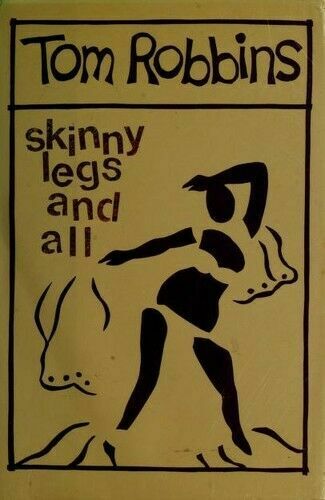Monday
In observance of Super Bowl Sunday (I write this not knowing who won), I am repurposing a Super Bowl post from nine years ago when American households faced a dilemma very similar to one found in the Tom Robbins novel Skinny Legs and All (1990). In addition to being very funny, Skinny Legs has a great reflection on importance Americans attach to football’s championship game.
The conflict in America in February, 2012 was between the Super Bowl and a season finale of Downton Abbey. Just as Eli Manning was driving the Giants down the field for the come-from-behind win over the undefeated New England Patriots—a drive that included David Tyree’s immortal helmet catch—Downton Abbey was just wrapping up its season. For some, the conflict was excruciating.
In Robbins’s novel, the conflict is just as excruciating, pitting as it does the Super Bowl against a belly dancer. I can’t begin to do justice to this whacky, bawdy, and immensely enjoyable work, but to set up the scene quickly, a remarkable middle eastern dancer is so moved by a painting by protagonist Ellen Cherry Charles that she agrees to do the fabled dance of the seven veils:
This is the room where Jezebel frescoed her eyelids with history’s tragic glitter, where Delilah practiced for her beautician’s license, the room in which Salome dropped the seventh veil while dancing the dance of ultimate cognition, skinny legs and all.
Each of the seven veils represents something that keeps humans from happiness, including politics, religion, money, and fear of sex.
The dance occurs in an Israeli-Palestinian restaurant, co-owned by a Jew and a Muslim, that is located across the street from the United Nations and that is periodically bombed by fundamentalist Jews, Muslims, and Christians. Reading Skinny Legs in 1990 was my first introduction to the unhealthy union between end-of-days Christians and Israeli nationalists.
The patrons of the restaurant are thrilled at the prospect of Salome’s dance as the dancer has developed an immense fan base. Unfortunately, there’s a catch: she will be dancing exactly at the time of the Super Bowl. She can’t do otherwise as the stars, not she herself, decide. In other words, a brutal and overly commercialized sport is contrasted with the prospect of world peace.
Here’s Robbins:
Conflicts flared almost instantaneously. On the one side, there were those for whom the legendary Dance of the Seven Veils had taken on the proportions of fabulous personal fantasy—romantic, erotic, opulent, mysterious, resonant with long-lost exotica, secrets of the Bible and secrets of the East: they would have crawled ten kilometers on a carpet of dog poop and razor blades to witness it, were it the genuine article; and with this devastating nymph who called herself Salome, there was no question of authenticity. On the other side were those for whom the Super Bowl was the most anticipated event of each and every year, the culmination of five months of thrills, endless statistics, ego boosts, and severe disappointments; a major holiday, if not the major holiday, a day when routine and care were suspended; when they nation, the world, came together as one; a festival that cut cross national, racial and religious boundaries; a ritual during which no time existed except the artificial time on the game clock, a symbolic battle in which only token blood was shed and for the duration of which the grip of death on the human psyche was relaxed and put aside: Issac and Ishmael’s still had the biggest, sharpest television screen in midtown Manhattan, and this group had every intention of watching the game on it.
A few people think they’ll be able to move between both, but they are wrong. It’s one or the other. At the end of the novel, a Christian fundamentalist—today he would be a Trump supporter—attacks the dancer but is shot by a policeman who has become a Salome enthusiast.
Those who see the dance have life-altering revelations while those who watch the Super Bowl just watch the Super Bowl. I won’t say that those who watched Downton Abbey nine years ago had their lives changed, but it’s impressive that, during the football game, there was only a 10 percent drop-off from regular PBS viewership.
It’s okay if you watched the Super Bowl yesterday. Just keep it in perspective.


